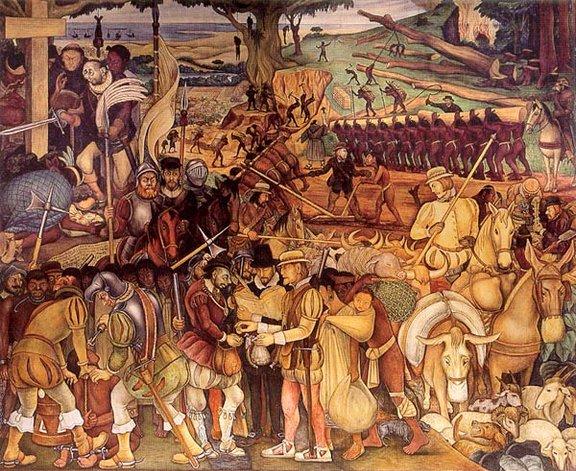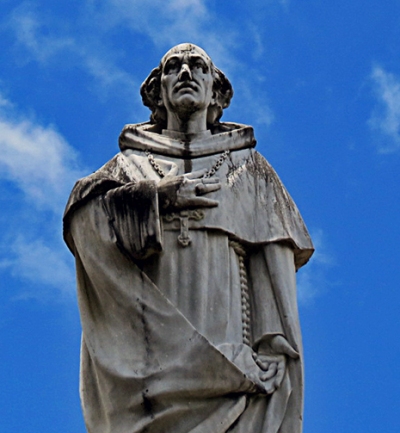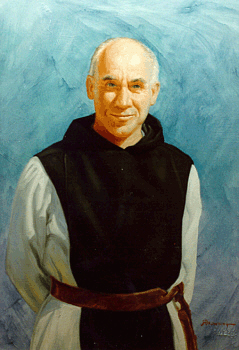Selected and edited by Ken Sehested
Introduction: A special issue of “Signs of the Times” devoted to Thomas Merton (31 January 1915 – 10 December 1968) quotes was already in the works, to mark the centennial of his birth. But when Pope Francis, in his historic address to a joint session of Congress, lifted Merton's name for special recognition (along with three other Americans), it seemed timely to move up the schedule. (Continue reading Ken Sehested’s "Introduction: The Quotable Thomas Merton.")
§ § §
Read more ›

 "God acted . . . as a father who has two daughters: one very white, full of grace and gentility; the other very ugly, bleary-eyed, stupid and bestial. If the first is to be married, she doesn't need a dowry, but only to be put in the palace and those who want to marry her would compete for her. For the ugly, stupid, foolish wretch, it isn't enough to give her a large dowry, many jewels, lovely magnificent, and expensive clothes. . . .
"God acted . . . as a father who has two daughters: one very white, full of grace and gentility; the other very ugly, bleary-eyed, stupid and bestial. If the first is to be married, she doesn't need a dowry, but only to be put in the palace and those who want to marry her would compete for her. For the ugly, stupid, foolish wretch, it isn't enough to give her a large dowry, many jewels, lovely magnificent, and expensive clothes. . . . Born in 1484, Las Casas first traveled to the island of Hispaniola in 1502 along with his father, a Spanish merchant. Initially he participated in and profited from Spain’s enslavement of the population. In 1510 he was the first priest to be ordained in the Americas.
Born in 1484, Las Casas first traveled to the island of Hispaniola in 1502 along with his father, a Spanish merchant. Initially he participated in and profited from Spain’s enslavement of the population. In 1510 he was the first priest to be ordained in the Americas. blind sightedness. Not your stereotypical candidates for sainthood. In other words, folk like us, like the ones in our churches and neighborhoods and families.
blind sightedness. Not your stereotypical candidates for sainthood. In other words, folk like us, like the ones in our churches and neighborhoods and families. § It may be true that every prophet is a pain in the neck, but it is not true that every pain in the neck is a prophet. There is no more firmly entrenched expression of the false self than the self-proclaimed prophet.
§ It may be true that every prophet is a pain in the neck, but it is not true that every pain in the neck is a prophet. There is no more firmly entrenched expression of the false self than the self-proclaimed prophet.